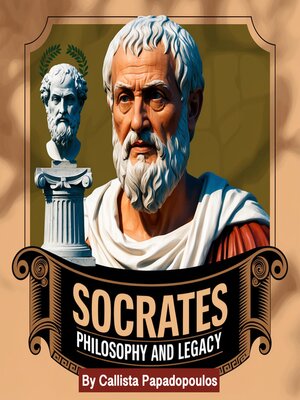
Sign up to save your library
With an OverDrive account, you can save your favorite libraries for at-a-glance information about availability. Find out more about OverDrive accounts.
Find this title in Libby, the library reading app by OverDrive.



Search for a digital library with this title
Title found at these libraries:
| Library Name | Distance |
|---|---|
| Loading... |
This audiobook is narrated by a digital voice.
In the bustling streets of fifth-century Athens, where merchants hawked their wares and politicians debated the future of democracy, there walked a man whose very presence would challenge everything his fellow citizens thought they knew about wisdom, virtue, and the examined life. Socrates, born around 470 BCE, emerged from the artisan class of Athenian society to become perhaps the most influential philosopher in Western history, despite never writing a single word himself.
The Athens of Socrates' youth was a city in transformation. The Persian Wars had ended with Greek victory, and Athens had risen to become the dominant power in the Greek world through its naval empire and the Delian League. The city was experiencing unprecedented prosperity, cultural flowering, and intellectual ferment. It was the age of Pericles, when the Parthenon was built and democracy reached its zenith. Yet beneath this golden exterior lay tensions that would eventually tear the city apart.
Socrates was born into this world as the son of Sophroniscus, a stonemason, and Phaenarete, a midwife. His family background in craftsmanship would later influence his philosophical method, as he often compared his role as a philosopher to that of his mother's profession, helping others give birth to ideas they already possessed but had not yet recognized. The image of Socrates as an intellectual midwife became central to understanding his approach to philosophy.







